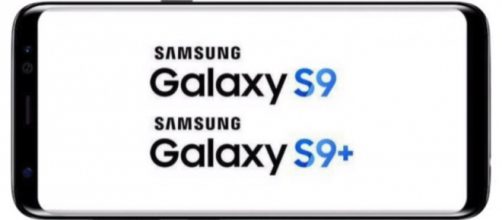Samsung's upcoming flagship smartphones, the Galaxy S9 and S9+ have been floating around the rumor mill for some time now. Lining with this, new reports suggest that fingerprint scanners in Samsung’s upcoming flagship smartphones will not be embedded in the display.
According to The Investor, the company's decision to not integrate a fingerprint scanner under the phones' display is due to unceasing technical problems.
What to expect?
The report hints at a rear-mounted fingerprint scanner for the Galaxy S9 and its larger sibling, the S9+, instead.
If this comes to fruition, it would be hardly surprising if the upcoming Galaxy S-branded smartphones come bearing a design identical to their well-received predecessors, the Galaxy S8 and the Galaxy S8+.
Aside from fingerprint scanning, there are a couple of other biometric options as far as unlocking the Galaxy S8 is concerned. These include facial recognition and iris scanning. According to the South Korean handset maker, these solutions offer defense-grade security round-the-clock.
Flawed biometric options
Samsung later admitted that the facial recognition system is relatively less secure than password, PIN, or pattern as it can be easily tricked with a photo of the user. The iris scanner isn't spared from flaws either.
The acknowledgment came in the form of a blog post on the company's official website after a video showing the loophole in the highly-touted facial recognition system surfaced online.
Despite the convenience the system offers, it is imperative to bear in mind that facial recognition can only be used for accessing the Galaxy S8 smartphone. The system is not reliable when it comes to authenticating access to Secure Folder or Samsung Pay, the company told Ars Technica earlier this year.
A few ideas floating around earlier suggested that Apple was gearing up to embed Touch ID either under the iPhone X's display, or on the back or side of the handset.
Apple's hardware engineering chief Dan Riccio debunked the rumors noting that the company dropped the idea of incorporating any sort of fingerprint scanning after it hit an early line of sight with Face ID that can securely unlock the iPhone X.
Facial recognition system vs Face ID
According to a new report by MacRumors, Samsung's facial recognition system is less reliable than Face ID offered by the Cupertino-based tech giant in terms of security.
Apple claims that Face ID employs a relatively advanced 3D facial recognition with a negligible 1 in 1,000,000 odds of being defrauded by another person.
The iPhone maker is so confident in its security system that it is on the verge of ousting Touch ID in favor of the TrueDepth system on all iPhone models slated to be released next year. This shred of information comes from the highly-reliable KGI Securities analyst Ming-Chi Kuo.
The TrueDepth camera reads more than a whopping 30, 000 projected infrared dots forming a depth map of user's face and a 2D infrared image.
This information is later used to generate a series of digitally signed 2D images along with depth maps, which are then transferred to the Secure Enclave. Face ID is designed to establish user attention, while ensuring a low false match rate, along with reduced digital and physical defraud.


